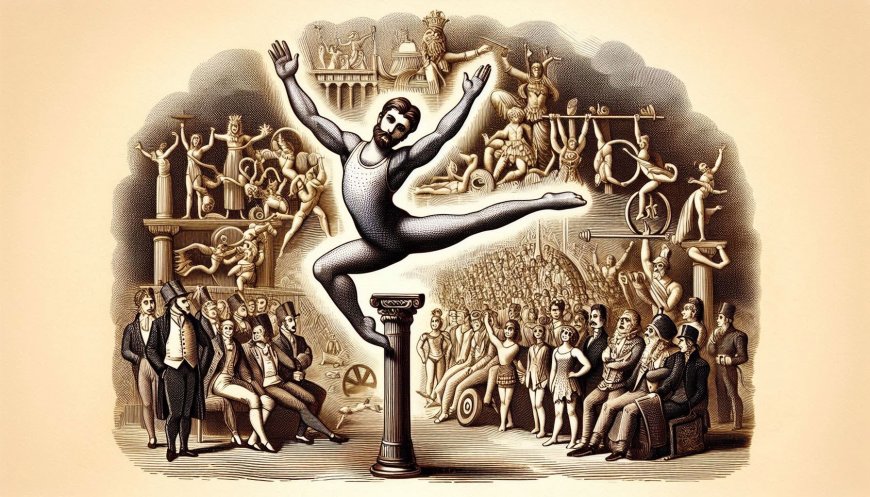Did You Know? The Surprising Origins of the Word "Gymnastics"
Discover the surprising origins of the word 'gymnastics'—from ancient Greek 'gymnazein,' meaning 'to exercise naked.' Learn how this sport began as military training for young Greek men.

Gymnastics is often associated with grace, discipline, and strength—flipping through the air, balancing on beams, or performing stunning routines on floor mats. But did you know that the word "gymnastics" has a surprisingly bold origin? The term comes from the ancient Greek word "gymnazein", which literally means "to exercise naked".
The Ancient Greek Roots
In ancient Greece, physical fitness was not just about staying in shape—it was considered a crucial part of being a citizen. Strength, agility, and endurance were essential for military service, and exercise was deeply connected with both education and warfare.
The word “gymnazein” (γυμνάζειν) was used to describe physical training and exercise, especially for young men. It comes from “gymnos” (γυμνός), meaning naked. This wasn't just symbolic—Greek men often performed athletic activities without clothing. This practice was not considered strange or indecent; rather, it was a cultural norm that reflected the Greek admiration for the human body and its capabilities.
The Gymnasium: More Than Just a Fitness Center
From "gymnazein" came "gymnasion" (γυμνάσιον), meaning a place for physical training. These gymnasiums were central institutions in Greek cities. But they weren’t just places to build muscles—they were educational hubs where young men learned philosophy, music, literature, and rhetoric alongside physical training. In essence, gymnasiums were training grounds for both body and mind.
Over time, the gymnasium also became a social and cultural center. Philosophers like Socrates and Plato were known to frequent gymnasiums, not just to exercise, but to engage in debates and discussions. The blending of physical and intellectual development was key to the Greek ideal of arete—a word that roughly translates to "excellence" or "virtue."
Nakedness and Athleticism
To modern eyes, the idea of exercising naked may seem strange, even shocking. But for the ancient Greeks, it was a way to ensure freedom of movement and to express admiration for the form and function of the human body. Public competitions, including those in the ancient Olympic Games, were performed in the nude. Athletes would sometimes oil their bodies to protect from the sun and highlight muscle tone—a combination of performance and aesthetic appreciation.
Gymnastics and Warfare
Gymnastics, in its original form, was not about competition or Olympic medals—it was about preparation for war. Young men practiced running, jumping, wrestling, and other physical exercises to become stronger and more agile soldiers. These exercises were essential in a society where city-states like Athens and Sparta often found themselves in conflict.
Spartan society, in particular, placed enormous emphasis on physical fitness from an early age. Boys were taken from their families at a young age to begin rigorous training programs aimed at producing elite warriors. Gymnastics was a key part of this training.
The Evolution of Gymnastics
As time passed, gymnastics evolved. With the fall of ancient Greece and the rise of the Roman Empire, the cultural practice of exercising naked declined. The Romans adopted many Greek customs but adapted them to suit their own social norms.
In the modern era, gymnastics re-emerged as a formal sport in 19th-century Europe, especially in Germany and Sweden. It became part of school curriculums and military training once again, though—thankfully—clothing was now involved!
Today’s gymnastics has grown into a competitive, artistic, and highly structured sport that showcases incredible physical ability. Yet its name still echoes its bold, bare beginnings in the gymnasiums of ancient Greece.
Conclusion
The next time you watch an Olympic gymnast flip across the mat or perform a routine on the rings, remember the surprising history behind the sport. From naked warriors in ancient Greece to modern athletes in colorful uniforms, gymnastics has journeyed through centuries of transformation. And it all started with a simple, literal idea: to train the body in its purest form—gymnazein, to exercise naked.
What's Your Reaction?






































































































